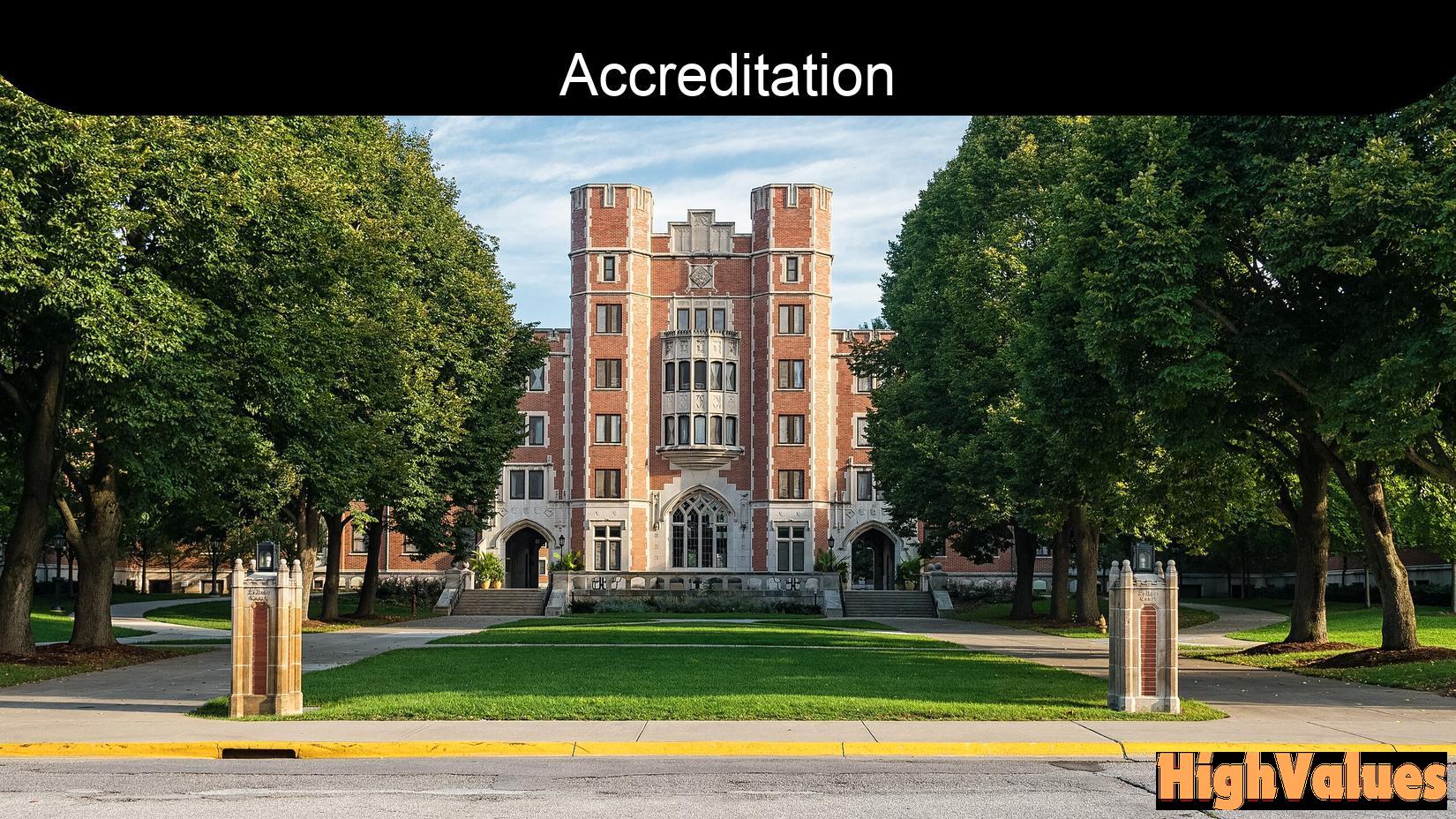When considering higher education, one of the most crucial factors to evaluate is the accreditation of the institution. Accreditation serves as a stamp of approval, ensuring that a university meets specific educational standards. Purdue University, with its long-standing regional accreditation by the Higher Learning Commission (HLC), offers numerous benefits to its students.
In this article, I’ll explore how this accreditation impacts students positively and why it should matter to you.
What is Regional Accreditation?
Before diving into the benefits, let’s clarify what regional accreditation means. Regional accreditation is granted by recognized accrediting bodies that evaluate institutions across specific geographical areas. The Higher Learning Commission has been accrediting Purdue University since 1913. This means that Purdue has undergone rigorous assessments to ensure it provides quality education, resources, and support to its students.
Benefits of Purdue University's Regional Accreditation
1. Quality Assurance
One of the most significant benefits of attending a regionally accredited institution like Purdue University is the assurance of quality education. Accreditation indicates that Purdue meets high academic standards, which translates into a solid educational foundation for students.
- Curriculum Standards: The curriculum at Purdue is regularly reviewed and updated to meet industry standards and educational best practices.
- Qualified Faculty: Accredited institutions typically employ faculty members who hold advanced degrees and have relevant professional experience.
2. Transfer of Credits
If you plan to transfer to another college or university, attending a regionally accredited school is essential. Purdue’s accreditation ensures that your credits are more likely to be accepted by other institutions. This is particularly beneficial for students who might change their academic path or pursue further education.
- Easier Transfers: Most regionally accredited institutions recognize credits from other accredited schools, making the transition smoother.
- Preservation of Progress: You won’t lose valuable time or money retaking courses you’ve already completed.
3. Access to Financial Aid
Attending an accredited institution opens up various financial aid opportunities. Federal and state financial aid programs, including grants and loans, are generally available only to students enrolled in regionally accredited schools.
- Federal Student Aid: Students at Purdue can apply for federal financial aid, which can significantly reduce the cost of education.
- Scholarships: Many scholarships require enrollment in an accredited institution, increasing your chances of receiving financial support.
4. Postgraduate Opportunities
If you’re considering pursuing a graduate degree, attending a regionally accredited institution like Purdue can enhance your prospects. Many graduate programs require applicants to have earned their undergraduate degrees from accredited institutions.
- Graduate School Applications: Having a degree from Purdue can strengthen your application to prestigious graduate programs.
- Professional Licensure: Certain professions require licensure, which often mandates that candidates have degrees from accredited institutions.
5. Recognition and Reputation
Purdue University’s long history and strong reputation contribute to the value of its degrees. Employers and other educational institutions recognize the significance of a degree from an accredited university.
- Employability: Graduates from accredited institutions are often viewed more favorably by employers.
- Networking Opportunities: Purdue’s extensive alumni network can provide connections and job opportunities in various fields.
6. Comprehensive Support Services
Accredited institutions like Purdue typically offer a range of support services designed to help students succeed academically and personally. These services can include:
- Academic Advising: Guidance on course selection and academic planning.
- Tutoring Services: Assistance in various subjects to help students improve their understanding and performance.
- Career Services: Resources for job searching, resume writing, and interview preparation.
7. Commitment to Continuous Improvement
Accredited universities are committed to ongoing assessment and improvement. This dedication to quality ensures that students receive a relevant and effective education.
- Regular Evaluations: Purdue undergoes regular evaluations by the HLC to maintain its accreditation status.
- Feedback Mechanisms: Student feedback is often solicited and used to improve programs and services.
Comparison of Accredited vs. Non-Accredited Institutions
| Feature | Accredited Institutions | Non-Accredited Institutions |
|---|---|---|
| Quality Assurance | High | Variable |
| Credit Transferability | Easily transferable | Often not transferable |
| Financial Aid Access | Available | Limited or unavailable |
| Recognition by Employers | Highly recognized | Often less recognized |
| Support Services | Comprehensive | Limited |
| Commitment to Improvement | Ongoing evaluations | Variable commitment |
Conclusion
In conclusion, Purdue University’s regional accreditation by the Higher Learning Commission brings a multitude of benefits to students. From ensuring quality education and facilitating credit transfers to providing access to financial aid and enhancing postgraduate opportunities, the advantages are significant. If you’re considering your educational options, remember that choosing an accredited institution like Purdue can set you on a path to success.
As you embark on your educational journey, keep in mind the importance of accreditation. It’s not just a label; it’s a commitment to quality, integrity, and student success. So, whether you’re just starting your college search or looking to transfer, prioritize accredited institutions to maximize your educational experience.
